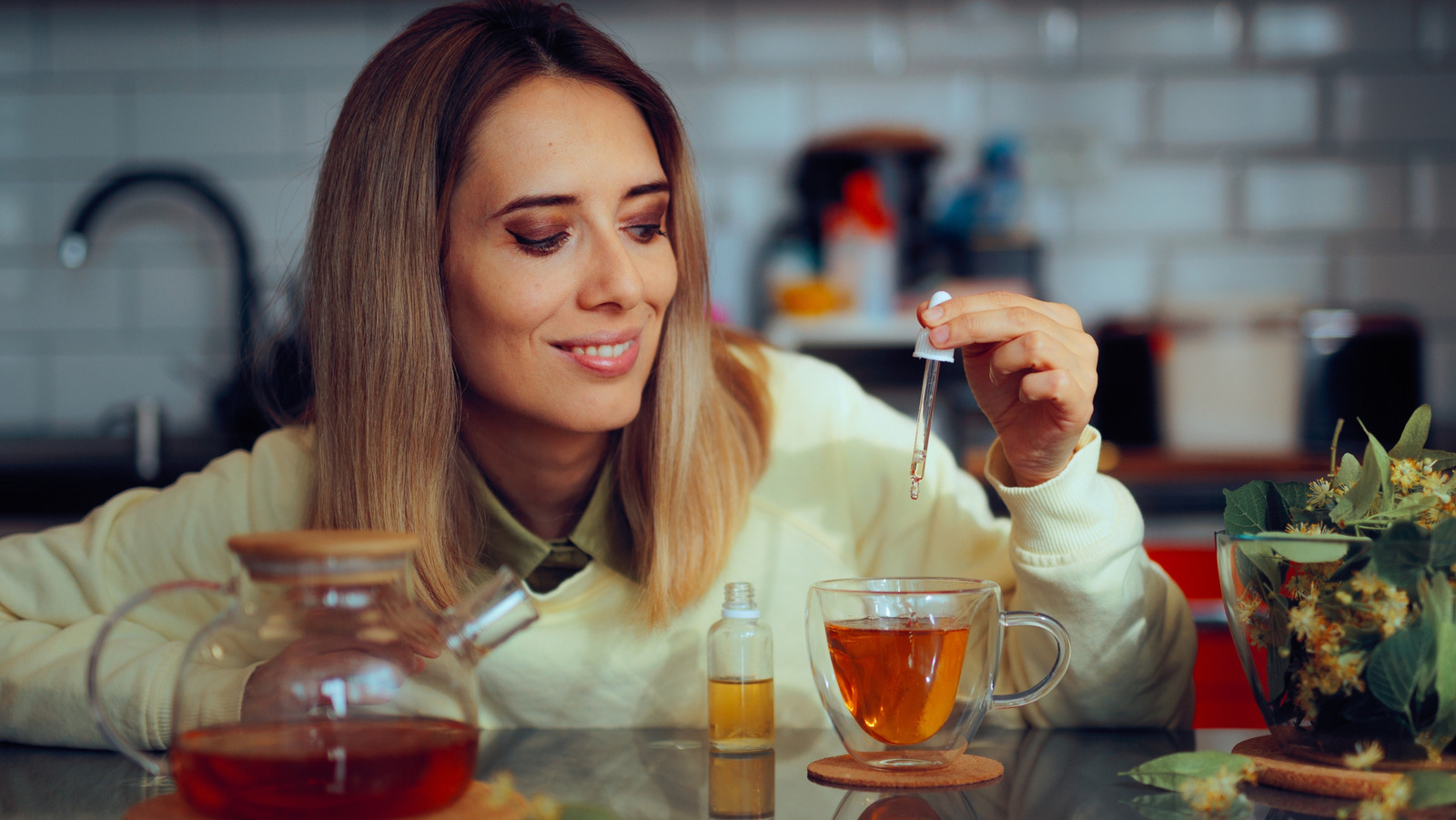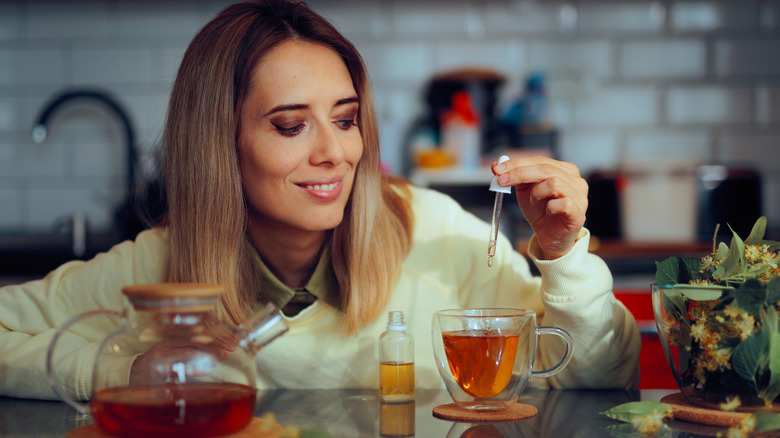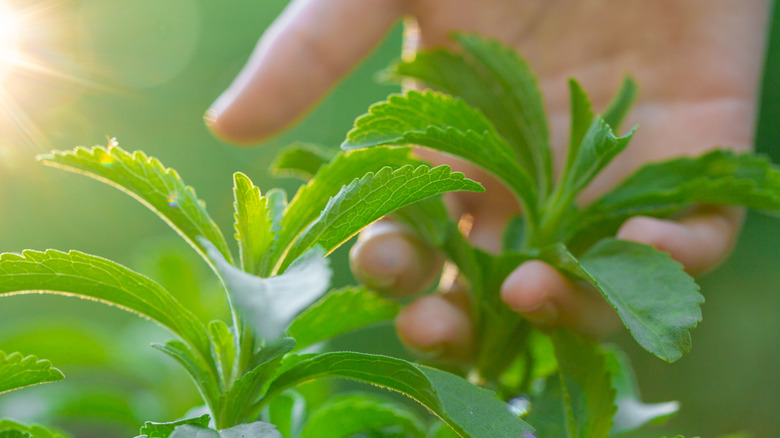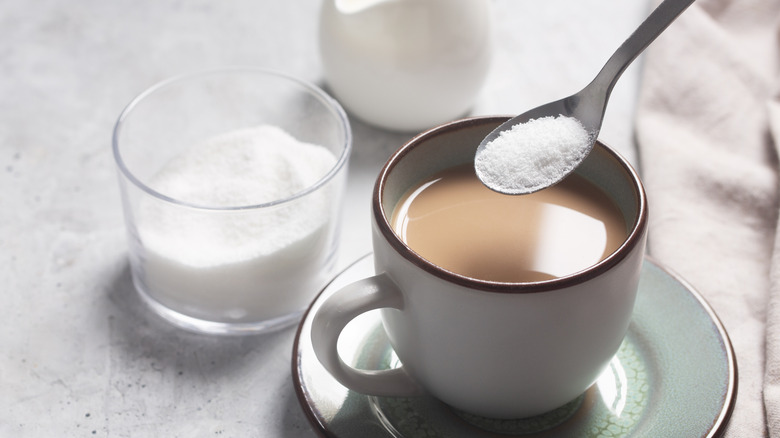
A Popular Sugar-Free Sweetener Might Have Cancer-Fighting Benefits – Health Digest
Added sugar in many of your favorite foods often comes with health risks like heart disease, obesity, type 2 diabetes, and inflammation. But switching to artificial sweeteners can have its drawbacks, too. According to the Food and Drug Administration, saccharin used to carry a warning label for its potential to cause cancer, although it’s now considered safe. Sucralose is also FDA-approved, but some studies suggest sucralose may be harmful to your gut. Meanwhile, the International Agency for Research on Cancer (IARC) has classified aspartame as “possibly carcinogenic to humans” due to limited research on humans.
That said, the plant-based sweetener stevia may actually offer some health benefits, thanks to its antioxidant and anti-cancer flavonoids and phenolic compounds. And stevia might pack an even bigger punch when it’s boosted by beneficial bacteria. A 2025 study in the International Journal of Molecular Sciences fermented stevia leaf extract with bacteria found on banana leaves, finding that it stopped the growth and spread of pancreatic cancer cells.
How fermenting stevia fights pancreatic cancer
Your little packet of stevia isn’t fighting cancer on its own, but the plant it comes from has some powerful compounds that might help. The calorie-free sweetener is made from stevia leaves, which are processed into steviol glycosides through several methods, including fermentation. To ferment stevia, you need a microorganism that transforms the plant’s natural sugars into steviol glycosides (per the International Stevia Council).
(Read why fermented foods are good for you.)
In this study, researchers took things a step further to boost stevia’s anti-cancer potential. First, they extracted a liquid concentrate from stevia leaves. Then, they fermented that extract with Lactobacillus plantarum bacteria for 72 hours. During fermentation, the bacteria transformed one of stevia’s natural compounds into a metabolite called chlorogenic acid methyl ester (CAME). This compound turned out to be particularly powerful at neutralizing free radicals and stopping pancreatic cancer cells from growing and spreading. It also triggered the death of the pancreatic cancer cells without harming healthy ones.
Is stevia healthy?
People with diabetes often turn to stevia to add sweetness to their foods and drinks since it doesn’t affect blood sugar levels. According to a 2021 review in EXCLI Journal, stevia may also help improve insulin sensitivity and support pancreatic function. Some compounds in stevia might even help lower blood pressure and protect against harmful pathogens like staph and E. coli. Stevia may also help reduce inflammation linked to chronic diseases.
But stevia isn’t without its downsides. According to Medical News Today, its diuretic properties could put extra strain on the kidneys. And for some people, stevia-sweetened foods that also contain sugar alcohols like erythritol may cause digestive issues.
If you’re using sugar-free sweeteners like stevia to lose weight, the World Health Organization says they’re not the best solution. Its 2023 review found that long-term use of sugar-free sweeteners may increase the risk of type 2 diabetes, heart disease, and even early death. Instead of swapping added sugar for sugar-free sweeteners, it may be better to reduce your overall taste for sweetness or stick to naturally occurring sugars from fruit (in moderation).





